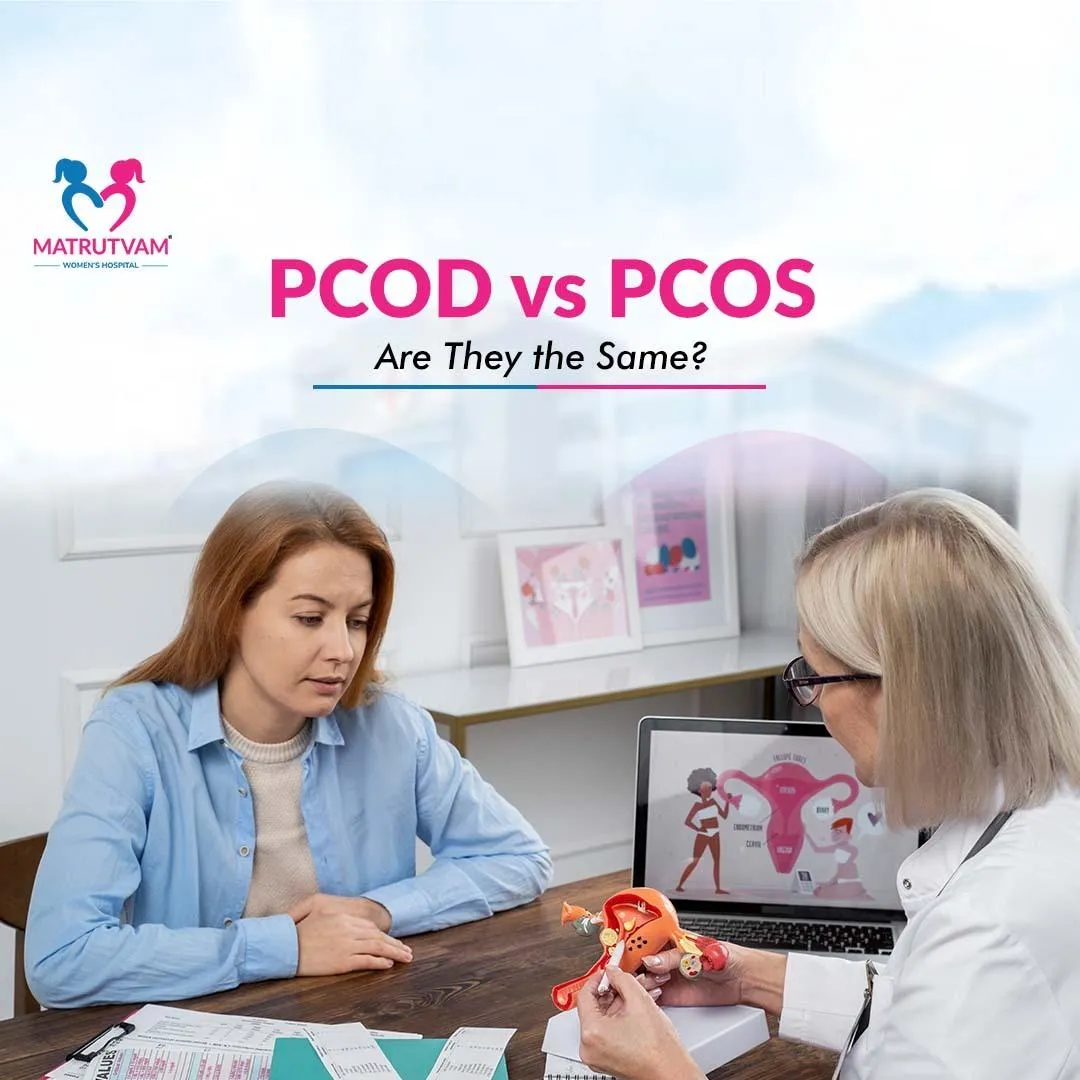
PCOD vs PCOS — Are They the Same?
1. The Two Names in One Line
PCOD stands for Polycystic Ovarian Disease.
PCOS stands for Polycystic Ovarian Syndrome.
Both involve small, fluid-filled sacs (cysts) in the ovaries and hormone ups and downs—but there are a few key differences.
2. Quick Table of Differences
How common?
• PCOD – very common; many women have mild PCOD.
• PCOS – less common but usually more serious.Periods
• PCOD – periods are often irregular, but cycles still happen.
• PCOS – periods may stop for months at a time.Hormones
• PCOD – slight rise in male-type hormones.
• PCOS – higher rise; can cause more acne and facial hair.Ovulation
• PCOD – ovulation usually still happens (though sometimes late).
• PCOS – ovulation often stops, so fertility problems are stronger.Health risks
• PCOD – fewer long-term risks if weight is healthy.
• PCOS – greater risk of diabetes, high blood pressure, and infertility if untreated.
Think of PCOD as a small traffic jam of eggs in the ovaries, while PCOS is a bigger city-wide traffic problem that also affects blood sugar and other body systems.
3. Shared Symptoms
Irregular or skipped periods
Weight gain, especially around the tummy
Acne or oily skin
Unwanted facial or body hair
Tiredness or mood swings
You may have one, some, or all of these signs.
4. Why Do They Happen?
Family genes – tends to run in families.
Hormone mix-up – extra insulin and male hormones.
Lifestyle links – little exercise, high-sugar food, stress, poor sleep.
5. Simple Everyday Fixes (Work for Both)
Eat balanced meals – half plate veggies, quarter protein, quarter whole grains; cut sugary drinks.
Move 30 minutes a day – brisk walk, cycling, or dance.
Sleep 7–8 hours – hormones reset at night.
Manage stress – deep breathing, yoga, or a hobby.
Track your cycle – app or calendar helps your doctor spot changes.
6. Medical Help at Matrutvam
Blood tests for hormones, sugar, cholesterol.
Ultrasound to see cysts.
Medicines like metformin or hormone pills if lifestyle steps are not enough.
Fertility support (IVF, IUI) when pregnancy is hard.
Diet & fitness coaching with our women-only team.
7. When to Call Us Quickly
No periods for three months
Positive pregnancy test but very irregular cycles
Sudden heavy acne or hair loss
Mood swings that disturb daily life
PCOD and PCOS are related but not identical. Both can be managed—and even reversed—with healthy habits and the right medical care. You don’t have to tackle them alone; Matrutvam is here to help women, for women.
☎ +91 91202 02120 | matrutvamhospitals.com
Visit us at ARK Business Centre, Nagar-Manmad Highway, Savedi, Ahilya Nagar 414 003.
#PCOD#PCOS #PCODvsPCOS#WomensHealth#HormoneHealth#PCOSAwareness
#HealthyHormones#FertilityCare#GynecologyTips#MatrutvamHospital#AhilyaNagar #AhmednagarHealth#PCOSDiet#PCODExercise#WomenCaringForWomen
